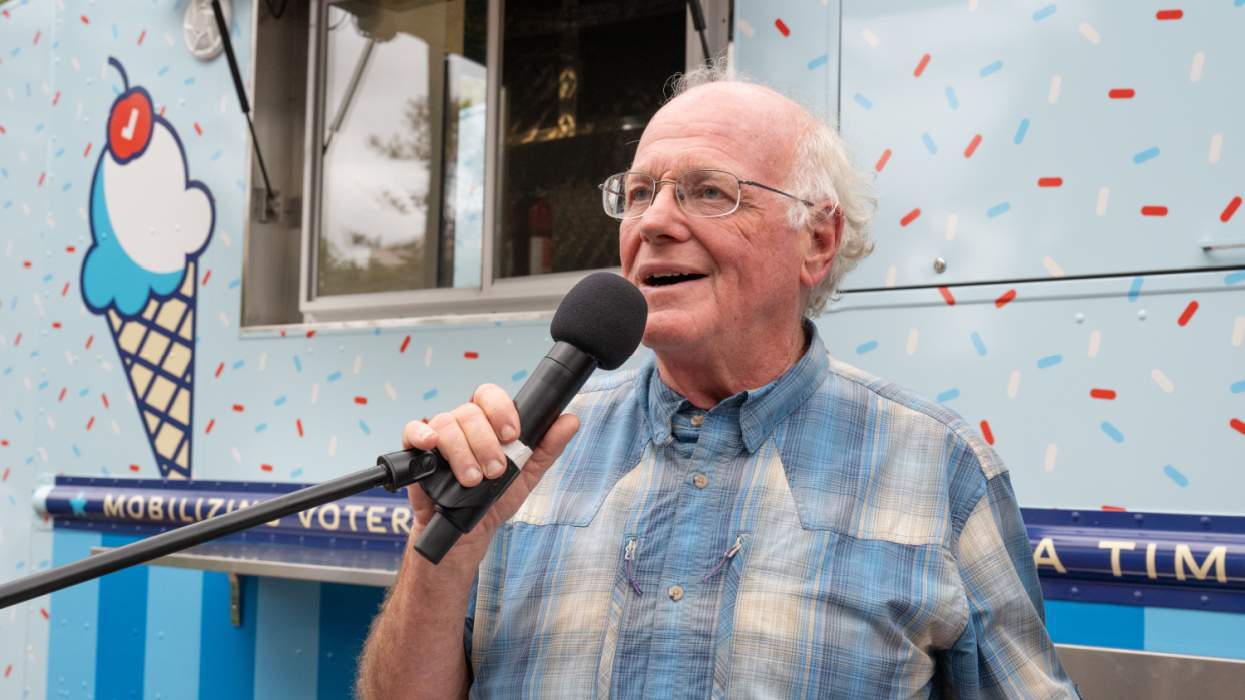LGBTQ+ adults still face more discrimination and unfair treatment than non-LGBTQ+ ones in their daily lives, including in health care settings, according to a survey from KFF.
Keep up with the latest in LGBTQ+ news and politics. Sign up for The Advocate's email newsletter.
The findings, based on analysis of KFF's 2023 Racism, Discrimination, and Health Survey, were released Tuesday. The survey was conducted June 6 through August 14 online and by telephone among a nationally representative sample of 6,292 U.S. adults.
Sixty-five percent of LGBTQ+ respondents said they experienced at least one form of discrimination in their daily life at least a few times in the past year, including receiving poorer service than others at restaurants or stores, people acting as if they are afraid of them or as if they are not smart, being threatened or harassed, or being criticized for speaking a language other than English. Forty percent of non-LGBTQ+ respondents reported such discrimination.
In receiving health care, LGBTQ+ respondents were twice as likely as others to report some form of mistreatment in the past three years, including being treated unfairly or with disrespect (33 percent versus 15 percent) or having at least one of several other negative experiences with a provider (61 percent versus 31 percent), “including a provider assuming something about them without asking, suggesting they were personally to blame for a health problem, ignoring a direct request or question, or refusing to prescribe needed pain medication,” KFF notes.
“Despite repeatedly refusing opioids and pain medication, I was assumed to be and treated as if I was trying to scam them into providing me with drugs,” a 26-year-old from Virginia related. “When picking up my prescribed medication at a pharmacy, I was told that it was against policy to provide me with my medication, with no further reasoning provided. When I calmly asked for more explanation, they threatened to call the police. When doctors have found out about my LGBTQIA identity, they have interrogated me about my sex life.”
Among LGBTQ+ respondents, women, younger people, and those with low incomes were more likely than others to report discrimination. Black and Hispanic LGBTQ+ respondents reported discrimination based on their race and ethnicity as well as their sexual orientation and gender identity — and to a greater degree than the racial bias experienced by their non-LGBTQ+ peers.
Still, the majority of LGBTQ+ participants said their experiences with health care providers were largely positive. More than 70 percent reported that over the past three years, their doctor or other provider regularly explained things in a way they could understand; understood and respected their cultural values and beliefs; involved them in decision-making about their care; and spent sufficient time with them during their visit. Only 29 percent, however, said the provider regularly asked about their work, housing situation, or access to food or transportation.
Regarding negative experiences, though, six in 10 LGBTQ+ respondents said they feel they have to be careful about their appearance or prepare for possible insults during a health care appointment. Only 39 percent of non-LGBTQ+ respondents said so. LGBTQ+ survey participants also reported lower levels of comfort in health care settings than their straight and cisgender peers.
Four in 10 LGBTQ+ adults described their mental health as “fair” or “poor,” rising to over half of younger ones and those with lower incomes. Overall, the rate was more than double that of non-LGBTQ+ adults. Discrimination contributed to feelings of depression and loneliness. LGBTQ+ respondents were also more likely than others to report near-daily worry or stress related to work, politics, providing for their family, or their health.
LGBTQ+ adults were twice as likely as non-LGBTQ+ ones to report experiences with a severe mental health crisis that resulted in serious consequences; however, having a robust local support network mitigated these challenges. About half of LGBTQ+ respondents said they lack a strong local support network, but eight in 10 were satisfied with the number of meaningful connections they have with other people.















Charlie Kirk DID say stoning gay people was the 'perfect law' — and these other heinous quotes
These are some of his worst comments about LGBTQ+ people made by Charlie Kirk.